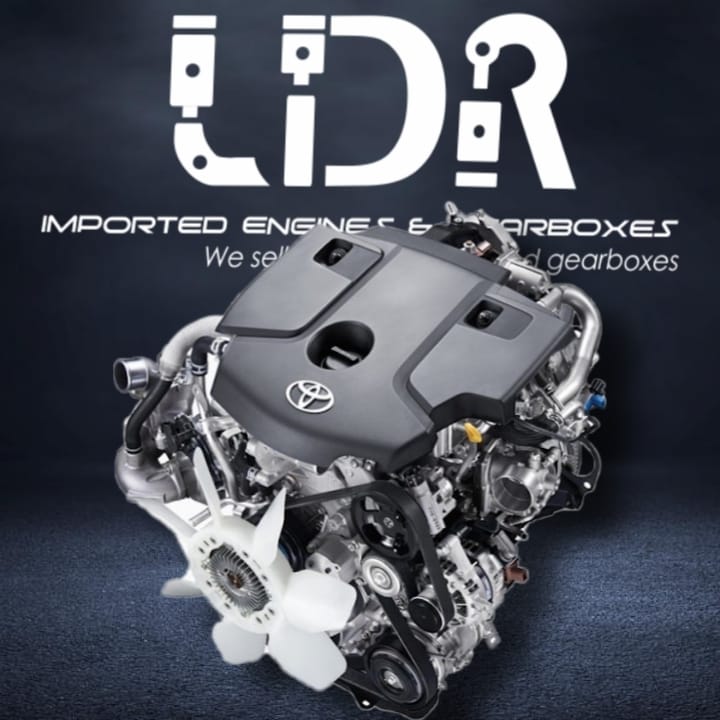Engine Acquiring Expert Tips on Selecting the Right Engine for Your Particular Requirements
Selecting the best engine for your specific requirements includes an intricate interplay of aspects that go past mere horse power numbers. By delving into the complexities of power versus efficiency, reviewing fuel ratings, and budgeting for lasting expenses, one can genuinely optimize their engine option.
Power Vs. Efficiency: Locating the Balance

When selecting an engine, it is essential to strike an equilibrium in between power and effectiveness to meet your particular needs effectively. Power describes the engine's capability to produce power for propulsion, figuring out aspects like acceleration, hauling ability, and general performance (Toyota Tazz Engine For Sale). On the various other hand, effectiveness connects to how well the engine makes use of fuel to generate power, affecting elements such as gas economic situation and ecological friendliness
Attaining the best equilibrium between power and performance is crucial since an engine that is too effective might take in too much gas, resulting in higher operating expense and unnecessary pressure on the atmosphere. Alternatively, an engine that focuses on efficiency over power might result in slow efficiency, especially sought after scenarios like towing hefty loads or driving uphill.
To make a notified choice, consider variables such as your normal driving conditions, the desired use the lorry, and your personal choices. By evaluating your priorities and needs, you can pick an engine that strikes the ideal equilibrium in between power and effectiveness, guaranteeing optimal performance while reducing environmental impact and operating prices.
Comprehending Engine Dimension and Kind

Usual engine kinds include inline engines, V engines, and rotary engines, each with its distinct advantages and downsides. Recognizing the interaction between engine dimension and kind is important in selecting an engine that straightens with your certain requirements and priorities, whether it be power, performance, or an equilibrium of both.
Consider Your Car's Needs
If you are looking for an engine for a sturdy truck that will certainly be used for towing, you will certainly require a powerful engine with high torque capacities. On the various other hand, if you are selecting an engine for a small auto mainly made use of for city commuting, fuel performance might be a more vital factor to take into consideration.

Reviewing Gas Performance Scores
Examining fuel efficiency ratings is a vital element of selecting the right engine for your vehicle, ensuring price financial savings and environmental sustainability. Fuel performance rankings, normally determined in miles per gallon (MPG) for gasoline engines or kilowatt-hours per 100 miles (kWh/100 miles) for electrical engines, show exactly how far a lorry can take a trip on a certain amount of fuel or electricity. Greater MPG or lower kWh/100 miles worths symbolize extra reliable engines, converting to reduced gas expenses and lower carbon emissions.
When reviewing view gas effectiveness ratings, consider your driving behaviors and demands. An extremely fuel-efficient engine can result in significant financial savings over time if you commute long distances daily. Additionally, contrast different engine choices within the same vehicle course to determine the most affordable choice. Variables such as engine dimension, weight, aerodynamics, and hybrid or electrical abilities can all influence fuel performance.
Budgeting for Long-Term Expenses
Purposefully planning for long-lasting costs is necessary when selecting an engine, making sure economic sustainability over the vehicle's life expectancy. While the preliminary acquisition rate of an engine is a considerable aspect, it is critical to consider the long-term costs connected with upkeep, repairs, and fuel consumption. Going with a much more fuel-efficient engine may have a greater ahead of time price but can lead to considerable financial savings with time. Normal maintenance, such as oil modifications, filter substitutes, and tune-ups, is crucial to keep the engine running smoothly and effectively, lowering the threat of costly repairs down the line.
Additionally, looking into the schedule and price of substitute parts for the chosen engine is vital in spending plan preparation. Engines with conveniently offered and budget friendly parts can considerably impact lasting upkeep costs. Additionally, considering the engine's longevity and anticipated life-span can aid stay clear of unforeseen substitute expenses in the future. By thoroughly budgeting for these lasting costs and factoring them into the decision-making procedure, individuals can pick an engine that not just satisfies their prompt needs yet likewise remains cost-efficient throughout its lifespan.
Verdict
To conclude, choosing the appropriate engine for your specific requirements needs balancing power and performance, understanding engine size and type, considering your automobile's needs, evaluating fuel performance rankings, and budgeting for long-term costs. By very carefully taking into consideration these factors, you can guarantee that you select an engine that satisfies your needs and offers ideal performance for your automobile.
To additionally improve the option procedure of an engine that strikes the optimum equilibrium in between power and performance, it is vital to dig into the ins and outs of comprehending engine size and type. Engine view it now size refers to the complete quantity of air and gas that can be pressed with the engine cylinders. Typical engine kinds include inline engines, read the full info here V engines, and rotating engines, each with its one-of-a-kind benefits and disadvantages. Comprehending the interplay between engine size and type is important in selecting an engine that aligns with your details demands and concerns, whether it be power, effectiveness, or a balance of both.
Fuel efficiency rankings, typically gauged in miles per gallon (MPG) for fuel engines or kilowatt-hours per 100 miles (kWh/100 miles) for electric engines, indicate just how far a car can take a trip on a details quantity of fuel or electrical power.